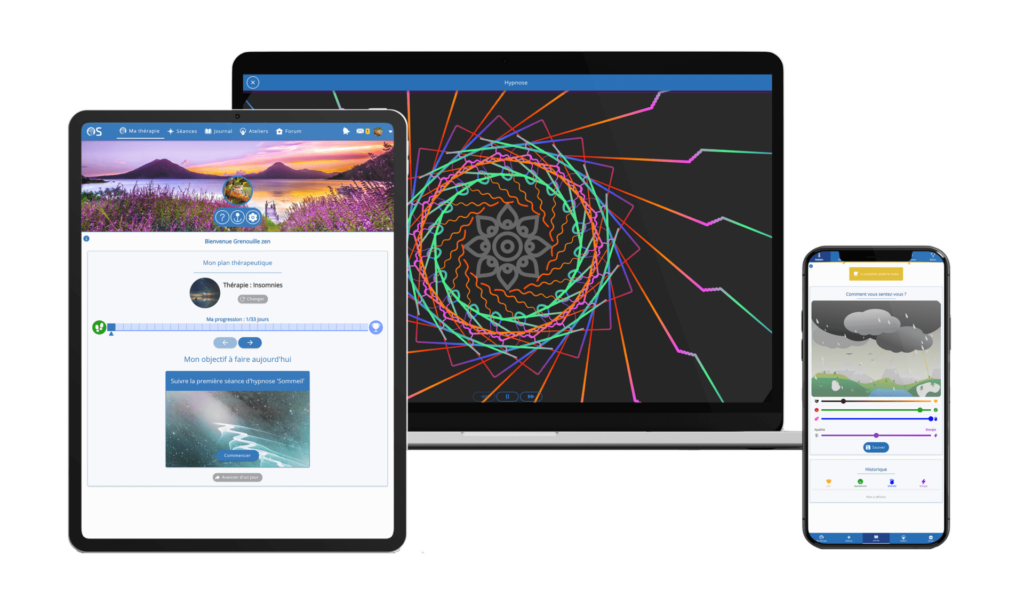How to manage, reduce and combat stress? Let's take a look at stress and its origins, and then see how to stay zen!

Background: Why stress?
Who hasn't had a stroke of stress ?
Is stress negative?
In reality, there is good stress and bad stress stress. Or to put it another way, there is good in a certain form of stress.
Stress is natural, it allows us to surpass ourselves, but it can also be toxic if it becomes too present. But should we fight, reduce and combat our stress or accept it? I don't understand anything anymore ....
Good stress and bad stress
The right one stress it energizes us, it makes us see stressful elements as a challenge, it enthuses us. Sometimes it scares us a little, but it gives us the desire to surpass ourselves and move forward.
Generally speaking, it gives us energy, unlike the bad stuff. stress that takes it away.
It's a way of distinguishing one from the other.
The bad stress it weighs us down, cuts us off, diminishes and freezes us. It prevents us from moving forward and getting things done, from taking action.
The bad stress regularity leads to inner sensations that are unpleasant and give rise to new fears. The fear of being afraid, for example, leads to anguish and anxiety. That's why it's so important to combat and reduce this unpleasant stress.
Bad stress, a source of anxiety: The importance of reducing and combating it
Anxiety or panic attacks are very difficult and unpleasant to live with. It's something that can ruin our lives to such an extent that we may be more afraid of re-experiencing the unpleasant sensation than the very thing that generated the anxiety attack in the first place.
For every stress, every anxiety, we perform an action that generates it.
Most of the time, this action is unconscious, taking place below the conscious threshold. Most people have no conscious desire to generate anxiety. I've never met an exception.
There are antecedents that create theanxiety and stress. An experience that goes wrong and that we're afraid will happen again later. Fear is therefore linked to the past: I bring this experience into the present, which creates fear by anticipation.

Anticipation: a source of stress
Through the memory of a situation that went wrong, I anticipate what could happen in the worst-case scenario. As a result, the physical sensation appears and what I dread happens. This confirms the belief, or rather it becomes a certainty, that I was right to worry, and therefore to be afraid and anxious.
Another way to get anxious is to project yourself into the future when no negative experience has yet occurred.
Example: I have to go on a trip and I project myself into everything that could go wrong.
It's a natural phenomenon that comes from a part of the brain that's in charge of keeping us safe and alive: survival. Like any parent who cares for his or her children, he or she plans for the worst to keep them out of harm's way.
Which is basically a good thing, except that only eight out of a hundred fears are well-founded, and everything else is an illusion.

How stress creates anxiety
There are two ways to createanxietyis to recall a bad memory and bring it back to the present, or to install it in the future, and to project oneself into the future in the negative possibilities that could arise.
Stress or anxiety doesn't just appear spontaneously, it doesn't come out of nowhere. It arises from the process described above.
It's a process of imagination, a mental process that appears even before physical sensation. It is this mental process that creates the physical sensation.
Once this physical sensation is present, it loops around with other thoughts, generating mental ideas that amplify and consolidate the phenomenon. These thoughts can become conscious.
The first actions are therefore completely unconscious, and as you can't solve an unconscious problem with your conscious mind, you have to treat the problem at its right level, i.e. the unconscious level. Let's now look at how to combat and reduce this bad stress.
Reduce and combat stress and anxiety
To start down this path of appeasement, we must first become aware of it, bringing the unconscious to the conscious. In other words, we need to understand the mechanism that leads to the generation of physical sensations of anxiety and stress. The unconscious communicates a message to us, and we need to listen and understand it. Its language is not the same, and we must learn to understand it.
There are two possible approaches to dealing with this:
The first thing that emerges in us is a projection into the past or future of a negative situation, either experienced or imagined. In either case, it's imaginary, since even past experiences (memories) remain imaginary in the present.
In this case, we can treat anxiety at source.
Sometimes, there may be something heavier, a deeper lived experience. In this case, it needs to be treated therapeutically. This may eventually require two or three hypnosis sessions, but this is quite rare. For this reason, we recommend you try out our online hypnosis sessions. Opensynaps.
Alternatively, we can use our understanding of the anxiety-generating process to solve the problem. The process of generating mental ideas.

There are four ways in which we generate stress and anxiety.
The four ways use internal discourse by plunging into memory or negative anticipation.
This internal discourse will create a negative imaginary within us, where the worst is projected.
The four ways of talking to oneself inwardly are as follows
First way
The first is to make direct suggestions to ourselves. We make direct suggestions to convince and encourage ourselves that things are going to go badly, like: I'm going to fail, it's going to go badly, I'm no good.
These are direct suggestions with no detours or outlines.
Second way
Then there are the "what ifs" that directly create an imaginary world too. These are the "once upon a time" scenarios. For example: "What if I suddenly don't make it to the end of the exam, what if he asks me questions I haven't studied for, what if I don't pass, what if I have an accident, what if... what if... what if...".
"With ifs we can bottle Paris."
As soon as we say this, the mind creates realistic representations on sensory channels that will refer either to the past, or to the future in anticipation, and always in the negative. This in turn generates negative and painful inner sensations.
Third way
The third is questioning.
Questioning is something that comes up with everyone who has anxiety attacks, unanimously. I've yet to meet an exception.
In our language, we use two types of questions: closed and open-ended. Most people experiencing anxiety attacks create only one type of question in their inner speech. These are closed questions to which there are only two possible answers: a yes or a no.
As the unconscious doesn't like a vacuum, it will constantly try to answer questions, and as it can only say yes or no and doesn't communicate with us in French (language), it will communicate its yes or no answer in the form of pleasant or unpleasant sensations.
Its primary objective is to prevent danger, so it must be pessimistic about the percentage of risk, and therefore always assume the worst. This is its role in keeping us alive. So, to a closed question such as: "Is today going to go well?", it will respond with a negative feeling to say: "No, be careful, be vigilant, because there's a risk of something going wrong". All this to keep us alive.
Fourth way
The fourth anguish-generating process in our internal discourse is that of injunctions. These are made up of modal operators that dilute or defer the action verb. For example: I've got to do..., I've got to get on with it..., I'm going to try to do it differently, I've got to go to work.
This type of sentence triggers our unconscious mind to ask: "What if we didn't do it, what would be the consequences? This creates the worst situation in our imagination.
We know from neuroscience that the brain makes no distinction between fantasy and reality.
So when we generate an imaginary reality, it tends to come true.

The solution to manage, reduce and combat stress
You can kill someone with a knife, but that doesn't mean we don't still have them at home. You've learned how to use them, and you've realized that you can also feed yourself with a knife.
If we can produce the worst through imagination, we can also produce the best. A tool, like a way of doing things, is never negative; it's the way we use it that can be negative.
You've learned. We used education to be able to use a knife wisely.
In truth, for your mind it's the same: a little stress is positive, but a lot is negative.
In order to reduce and combat this excessive stress within us, it's important to highlight each stressful situation, and not to cultivate our stress, but rather our calm. Because, as we've seen, stress can be cultivated with our imagination, and so can calm.

In conclusion, the solution: Cultivate calm to manage, reduce and combat stress.
You can be unaware of the mental processes that generate the stress you don't want, and fall victim to them all the time. You can misuse your mind against yourself or learn to use it and gain infinite possibilities from what your brain can offer you at its best potential.
Be active, creative and autonomous to live and be free in the life you've chosen!
From now on, you can use your imagination to cultivate a sense of calm, enabling you to manage, reduce and combat stress effectively.
To go further, I recommend you read the excellent book " Leave each other alone "by Fabrice Midal, who will give you simple solutions to avoid stress.
If you would also like techniques to easily manage, reduce and combat your stress, I can recommend the following hypnosisthe cardiac coherencethe sophrology or the meditation.














































